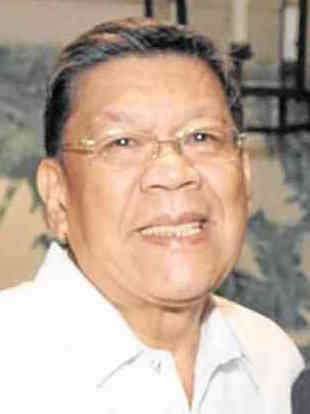
BIR Commissioner Caesar Dulay (INQUIRER FILE PHOTO / GEORGE SISON)
The commissioner of the Bureau of Internal Revenue can have access to confidential information shared between taxpayers and their accountants or lawyers during the course of an investigation, empowering the chief of the country’s biggest revenue agency to run after more tax cheats.
Revenue Memorandum Circular No. 12-2018 issued by Internal Revenue Commissioner Caesar R. Dulay on Feb. 22 clarified the nature and extent of the power of his office to obtain information vis-à-vis the existing attorney- and accountant-client privileges under the law.
“Under Section 5 of the National lnternal Revenue Code (NIRC), as amended—in ascertaining the correctness of any return, or in making a return when none has been made, or in determining the liability of any person for any internal revenue tax, or in collecting any such liability, or in evaluating tax compliance—the Commissioner of lnternal Revenue is empowered, inter-alio, to obtain on a regular basis from any person other than the person whose internal revenue tax liability is subject to audit or investigation any information, such as, but not limited to, receipts or sales and gross income of taxpayers, and the names, addresses, and financial statements of corporations, registered partnerships, and their members,” Dulay said.
Dulay noted that noncompliance to this section of the Tax Code would slap fines ranging from P1,000 to P10,000 as well as imprisonment of between one and 10 years.
However, Dulay conceded that there were certain information shared by taxpayers only to their accountants and lawyers.
“There is attorney-client privilege under the Code of Professional Responsibility and the Revised Rules on Evidence, wherein an attorney cannot, without the consent of his client, be examined as to any communication made by the client to him, or his advice given thereon in the course of, or with a view to, professional employment,” Dulay noted.
Also, “there is accountant-client privilege under Republic Act (RA) 9298, or the Philippine Accountancy Act of 2004, and the Code of Ethics for Professional Accountants stating that all working papers, schedules and memoranda de by a certified public accountant in the course of an examination, including those prepared and submitted by the client, incident to or in the course of an examination, by such certified public accountant shall be treated confidential and privileged, and that professional accountants shall refrain from disclosing outside the firm or employing organization confidential information acquired as a result of professional and business relationships,” the BIR chief added.